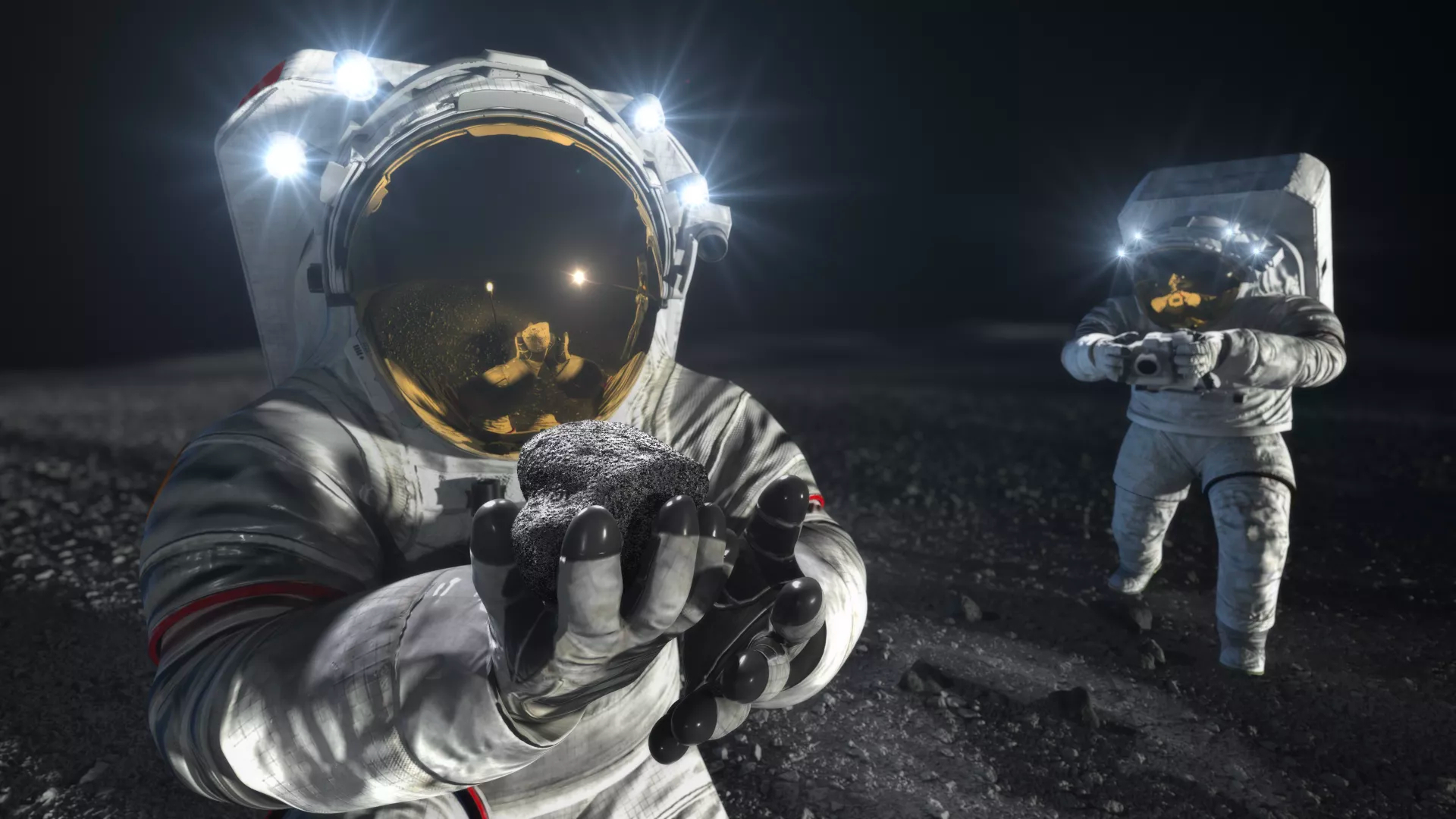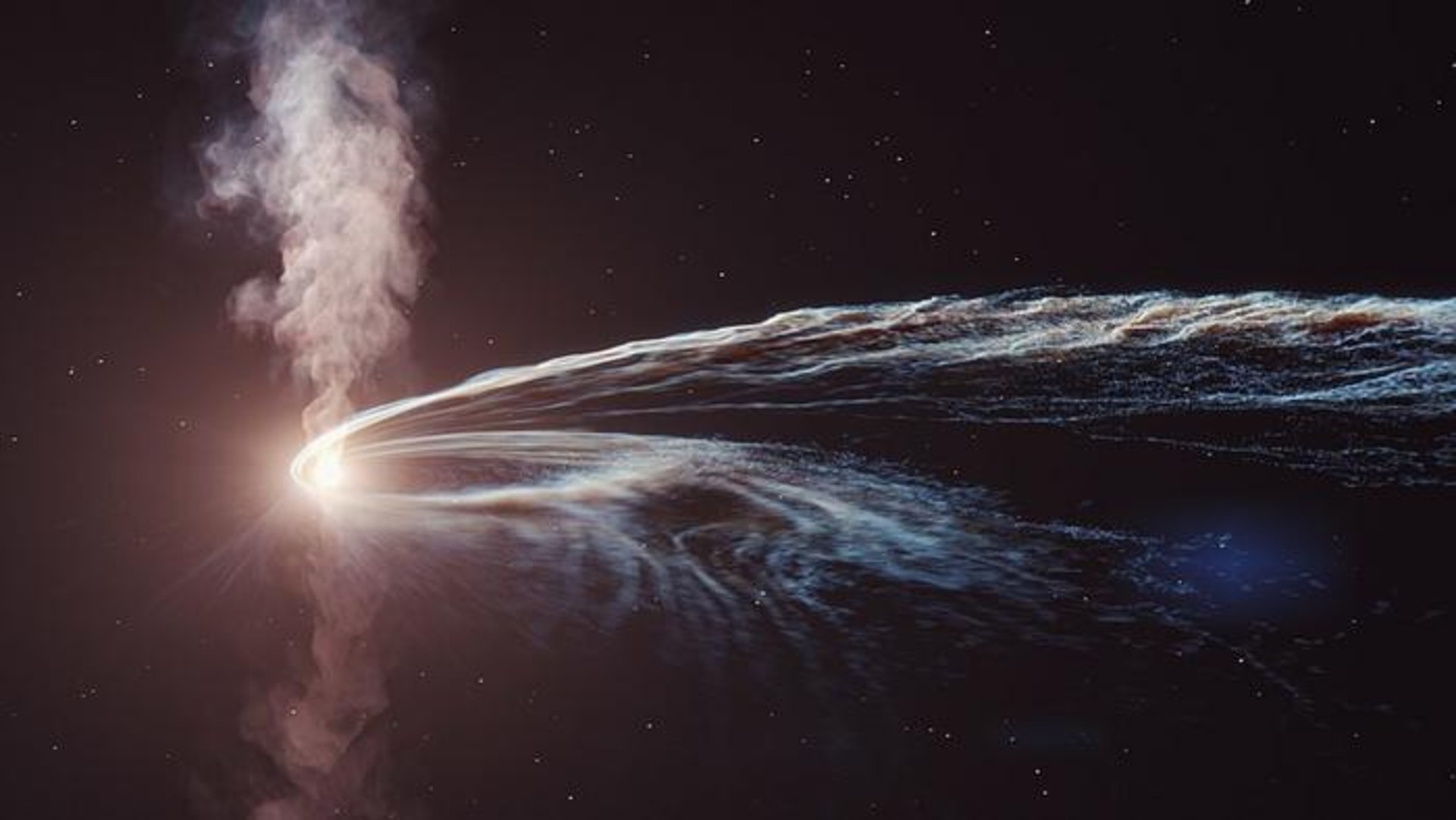Astronauts' immune systems could be disturbed by microgravity, scientists find
"If astronauts are to be able to undergo safe space missions, we need to understand how their immune systems are affected."

Breaking space news, the latest updates on rocket launches, skywatching events and more!
You are now subscribed
Your newsletter sign-up was successful
Want to add more newsletters?

Delivered daily
Daily Newsletter
Breaking space news, the latest updates on rocket launches, skywatching events and more!

Once a month
Watch This Space
Sign up to our monthly entertainment newsletter to keep up with all our coverage of the latest sci-fi and space movies, tv shows, games and books.

Once a week
Night Sky This Week
Discover this week's must-see night sky events, moon phases, and stunning astrophotos. Sign up for our skywatching newsletter and explore the universe with us!

Twice a month
Strange New Words
Space.com's Sci-Fi Reader's Club. Read a sci-fi short story every month and join a virtual community of fellow science fiction fans!
As a new era of crewed space exploration approaches, with prolonged missions to the moon and Mars planned for the coming decades, scientists are taking a closer look at how the environment of space can negatively impact the immune systems of astronauts.
In particular, a team from the Karolinska Institutet in Sweden looked at how microgravity experienced by space travelers could affect T-cells. A T-cell is a type of white blood cell, called a lymphocyte, that's crucial in fighting off disease.
The team's results could help explain why any changes to astronauts’ T cells that happen in space can persist back on Earth. Such lasting changes may lead to T cells becoming less active and less effective at fighting infection, making astronauts vulnerable to reoccurrence of latent viruses.
This will be something space agencies will likely want to know about as they start sending people to locations beyond Earth. NASA, for instance, is already looking to a future that includes lunar, and even Martian, travelers. With its Artemis 3 mission, a crew including the first woman and person of color is expected to head to the moon in 2025. And future efforts, the agency says, will possibly take humans to the surface of Mars as soon as the 2030s.
"If astronauts are to be able to undergo safe space missions, we need to understand how their immune systems are affected and try to find ways to counter harmful changes to it," Lisa Westerberg, study leader and principal researcher at the Karolinska Institutet Department of Microbiology, Tumor and Cell Biology, said in a statement. "We’ve now been able to investigate what happens to T cells, which are a key component of the immune system, when exposed to weightless conditions."
Related: Why Chandrayaan-3 landed near the moon's south pole — and why everyone else wants to get there too
Rather than conducting their experiments in space, Westerberg and the team brought a little bit of space down to Earth. They used a custom-made waterbed that tricks the body into thinking it is in a weightless state, a technique called "dry immersion."
Eight healthy subjects were exposed to dry immersion for a period of 3 weeks. The researchers performed blood analyses on these subjects at various intervals: Before the experiment, then seven, 14, and 21 days after the experiment commenced and, finally, a week after the experiment concluded.
Breaking space news, the latest updates on rocket launches, skywatching events and more!
They discovered that the subjects' T cells had altered in conjunction with dry immersion, basically changing in terms of "gene expression," or simply which genes were active and which were inactive. Such gene expression altered significantly after 7 and 14 days of weightlessness, but the most extreme change came after 14 days.
The genes of the T cells also seemed to adopt a more "immature" state during the process, meaning they behaved as if they hadn't encountered any viruses or other diseases. That's something that could have negative health implications down the line.
"The T cells began to resemble more so-called naïve T cells, which have not yet encountered any intruders. This could mean that they take longer to be activated and thus become less effective at fighting tumor cells and infections," Carlos Gallardo Dodd, study co-lead and a doctoral student at the Karolinska Institute Department of Microbiology, Tumor and Cell Biology, said in the statement.
After 21 days of exposure to microgravity, however, the subjects' T cells seemed to have adapted to weightlessness, with the cells' gene expression returning to almost normal. Yet, 7 days after the end of the experiment, the team found some of those original changes in gene expression due to weightlessness actually came back.
The team of scientists will now attempt to use the sounding rocket platform located at Esrange Space Center in Sweden to further examine T cells and the effects of weightlessness on their function.
"Our results can pave the way for new treatments that reverse these changes to the immune cells’ genetic program," Dodd concluded.
The team's research was published Aug. 25 in the journal Science Advances.

Robert Lea is a science journalist in the U.K. whose articles have been published in Physics World, New Scientist, Astronomy Magazine, All About Space, Newsweek and ZME Science. He also writes about science communication for Elsevier and the European Journal of Physics. Rob holds a bachelor of science degree in physics and astronomy from the U.K.’s Open University. Follow him on Twitter @sciencef1rst.
